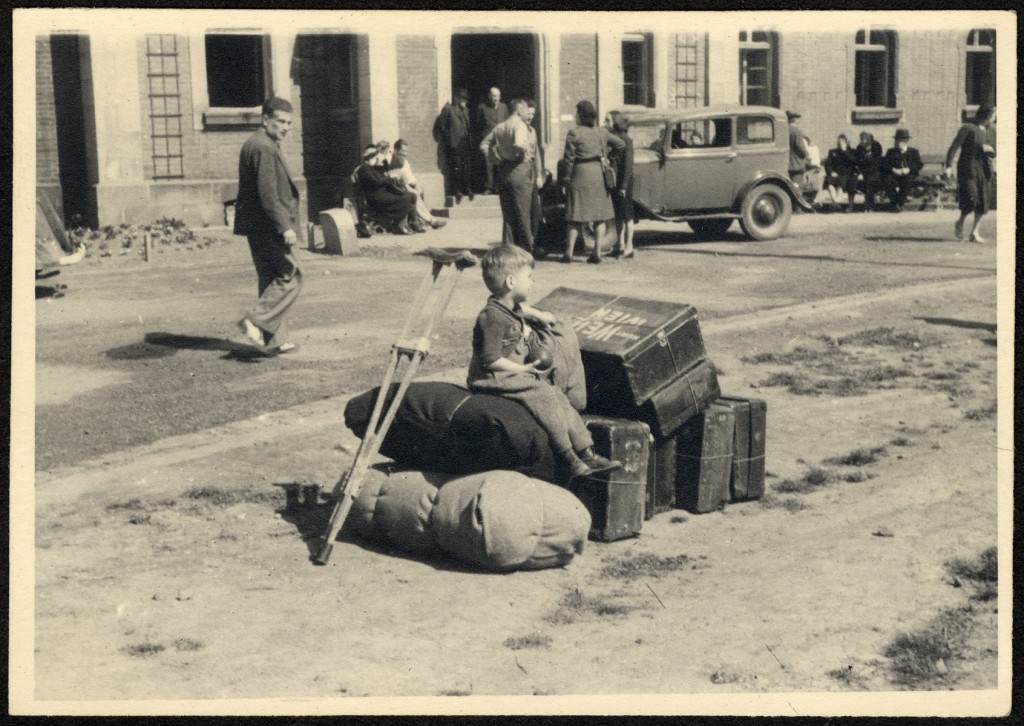
Deggendorf Displaced Persons Camp
For the Jews who survived the Holocaust, the end of World War II brought new challenges. Many could not or would not return to their former homelands, and options for legal immigration were limited. In spite of these difficulties, these Jewish survivors sought to rebuild their shattered lives by creating flourishing communities in displaced persons camps in Germany, Austria, and Italy. In an unparalleled six-year period between 1945 and 1951, European Jewish life was reborn in camps such as Deggendorf.
Home to an exceptionally active displaced persons (DP) community, Deggendorf was a medium-sized DP camp in the Bamberg district of the American-occupied zone. The camp housed approximately 2,000 Jewish DPs.
Deggendorf had two newspapers, the Deggendorf Center Review and Cum Ojfboj. The latter was the Yiddish weekly paper of the Zionist Achida Organization whose chief editor, Menachem Sztajer, was previously editor of Bamidbar in Foehrenwald. These newspapers were supplemented by the camp's sizable library of 1,700 volumes.
Deggendorf also organized a theater group, a synagogue, a mikve (Jewish ritual bath), and a kosher kitchen. The camp administration even issued its own paper currency, "Deggendorf Dollars," that was supported by a bank in Munich. The money bore the stamp, "Jewish Committee-D.P. Camp 7 Deggendorf." ORT operated a vocational training school in Deggendorf that offered a variety of occupations.
The Jewish community in Deggendorf reached 1,965 on October 18, 1948. Former inmates from Theresienstadt made up much of the camp's population.
Deggendorf DP camp closed on June 15, 1949.
Critical Thinking Questions
What challenges did survivors face in the DP camps?
What challenges did the Allies face in establishing and supervising DP camps?
What responsibilities do (or should) other nations have regarding refugees from war and genocide?

